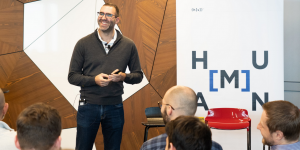Hyperscience Chief Executive Officer, Peter Brodsky first began automating in 2013, when he was head of the engineering team at SoundCloud. “We wanted to automate our old jobs away,” Brodsky tells Forbes. “Before we ever got the chance, we discovered that what we were doing through code, larger organizations were doing by hand.”
In 2014, Brodsky and two SoundCloud engineers founded Hyperscience. Today, Hyperscience has become of the most exciting tech startups in robotic process automation (RPA). This year Hyperscience was also named in Inc.’s 5000 list as the ninth fastest growing New York-based software company and was also named as one of the ‘Best Places to Work.’
Now, the company has raised $80 million in a Series D funding round, just months after raising $60 million in a Series C funding round in June. The latest round was led by Tiger Global, with participation from new investor BOND, as well as Bessemer Venture Partners and all existing major investors. Hyperscience says it has now raised a total of $190 million.
The company will use the funds to accelerate the development of the Hyperscience Platform, including data validation and unstructured data processing, as well as to build out the partner and channel ecosystem. The company will also significantly grow its international presence to meet accelerated demand with over one-quarter of its business projected to originate in Europe in 2021.
Hyperscience isn’t your typical RPA company, and, in fact, it claims it can do what RPAs can’t: rewrite and improve the business processes themselves. RPA software adds a layer of code that combines different systems to make them automatable but Brodsky says Hyperscience’s approach — which it calls “software-defined management” — can detect the best process that would lead to a certain outcome, even if no human has utilized it.
Additionally, the company claims that its technology solution automates 95% of data entry with over 99.5% accuracy.
“RPA faces an existential threat from the fact that they have hitched their wagon to a legacy star,” Brodsky claims. “With or without us, legacy systems will inevitably die out; that’s what legacy systems do. We want to help businesses define their business processes the same way that they write software.”
























